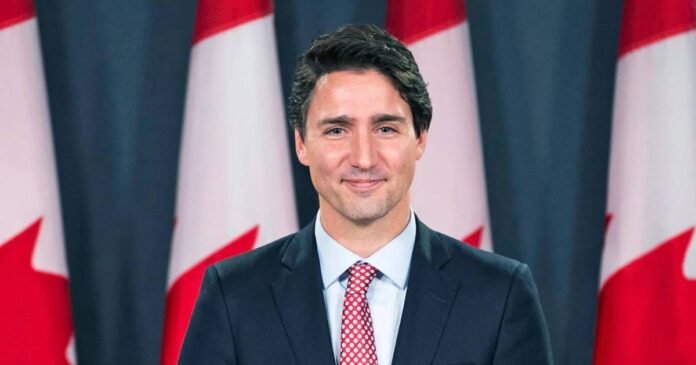Prime Minister Justin Trudeau and his Polish counterpart, Donald Tusk, recently held a joint news conference where they discussed Canada’s defense spending and the ongoing conflict between Russia and Ukraine. Trudeau defended Canada’s current defense spending, stating that while there is still more to do, Canada is committed to ensuring that its armed forces receive the necessary equipment and support. Tusk, on the other hand, urged the Western world, particularly Europe, to confront the dangers posed by Russia and to provide Ukraine with the resources it needs for a decisive victory.
Trudeau emphasized Canada’s dedication to its military commitments, both domestically and internationally. He acknowledged Poland’s significant increase in military spending and assured Tusk that Canada would also be stepping up its defense expenditures. Trudeau reaffirmed Canada’s commitment to NATO and its allies, pledging to provide the Canadian Armed Forces with the necessary resources to fulfill their obligations effectively.
Tusk echoed Trudeau’s sentiments, stressing the importance of NATO countries maximizing their ability to support Ukraine in its conflict with Russia. He warned that failure to do so could result in European countries being vulnerable to Russian aggression. Tusk called on all NATO members to meet the mandated two percent spending threshold to strengthen the alliance and ensure collective defense.
The issue of defense spending has long been a topic of debate within NATO. The alliance has set a target for member countries to spend two percent of their gross domestic product (GDP) on defense. However, many countries, including Canada, have yet to meet this target. Canada’s current defense spending hovers around 1.3 percent of GDP, while Poland boasts one of the highest ratios of military spending to GDP in the world.
Trudeau acknowledged the pressure Canada faces to increase its defense budget but reiterated his government’s commitment to meeting its NATO obligations. He highlighted Canada’s contributions to NATO as the seventh-largest contributor among its 31 member states. Trudeau pointed to investments in high-tech stealth fighters and the modernization of joint command with the United States, known as Norad, as evidence of Canada’s commitment to its defense capabilities.
Tusk stressed the importance of NATO solidarity, particularly in the face of Russian aggression. He emphasized the need for all NATO members to fulfill their defense spending commitments to strengthen the alliance and deter potential adversaries. Tusk expressed concern that failure to meet these obligations could undermine NATO’s credibility and leave allies vulnerable to security threats.
The conflict between Russia and Ukraine has been ongoing for several years, with Ukraine facing significant challenges in its efforts to defend its sovereignty. Despite receiving support from Western allies, including military assistance and economic sanctions against Russia, Ukraine continues to struggle against Russian-backed separatist forces in the eastern part of the country.
Trudeau’s visit to Ukraine reaffirmed Canada’s support for the country’s sovereignty and territorial integrity. He met with Ukrainian President Volodymyr Zelenskyy to discuss Canada’s ongoing assistance to Ukraine and to express solidarity with the Ukrainian people. Trudeau’s presence in Ukraine underscored Canada’s commitment to supporting its allies in the face of external aggression.
Poland has also been a vocal supporter of Ukraine, providing military assistance and advocating for increased Western support for the country. Polish President Andrzej Duda has called for NATO to bolster its presence in Eastern Europe to deter further Russian aggression. Poland, like Canada, views the conflict in Ukraine as a threat to regional stability and security.
The conflict in Ukraine has raised concerns among European leaders about the broader implications for security in the region. The war has displaced millions of people and caused widespread humanitarian suffering. European leaders have called for a diplomatic solution to the conflict but have also emphasized the need for continued support for Ukraine’s defense capabilities.
Trudeau’s meeting with Tusk and Duda in Poland highlighted the importance of international cooperation in addressing security challenges. The leaders discussed ways to strengthen NATO’s deterrence capabilities and support Ukraine in its efforts to defend itself against Russian aggression. They emphasized the need for unity and solidarity among Western allies in the face of common threats.
Despite the challenges posed by the conflict in Ukraine, Trudeau remains optimistic about the future of NATO and the strength of Canada’s alliances. He reiterated Canada’s commitment to upholding the principles of democracy, freedom, and human rights and expressed confidence in the ability of Western democracies to confront shared challenges together.
Prime Minister Justin Trudeau’s defense of Canada’s spending, alongside Polish counterpart Donald Tusk’s call for increased support for Ukraine, underscores the ongoing importance of NATO solidarity and international cooperation in addressing security threats.
